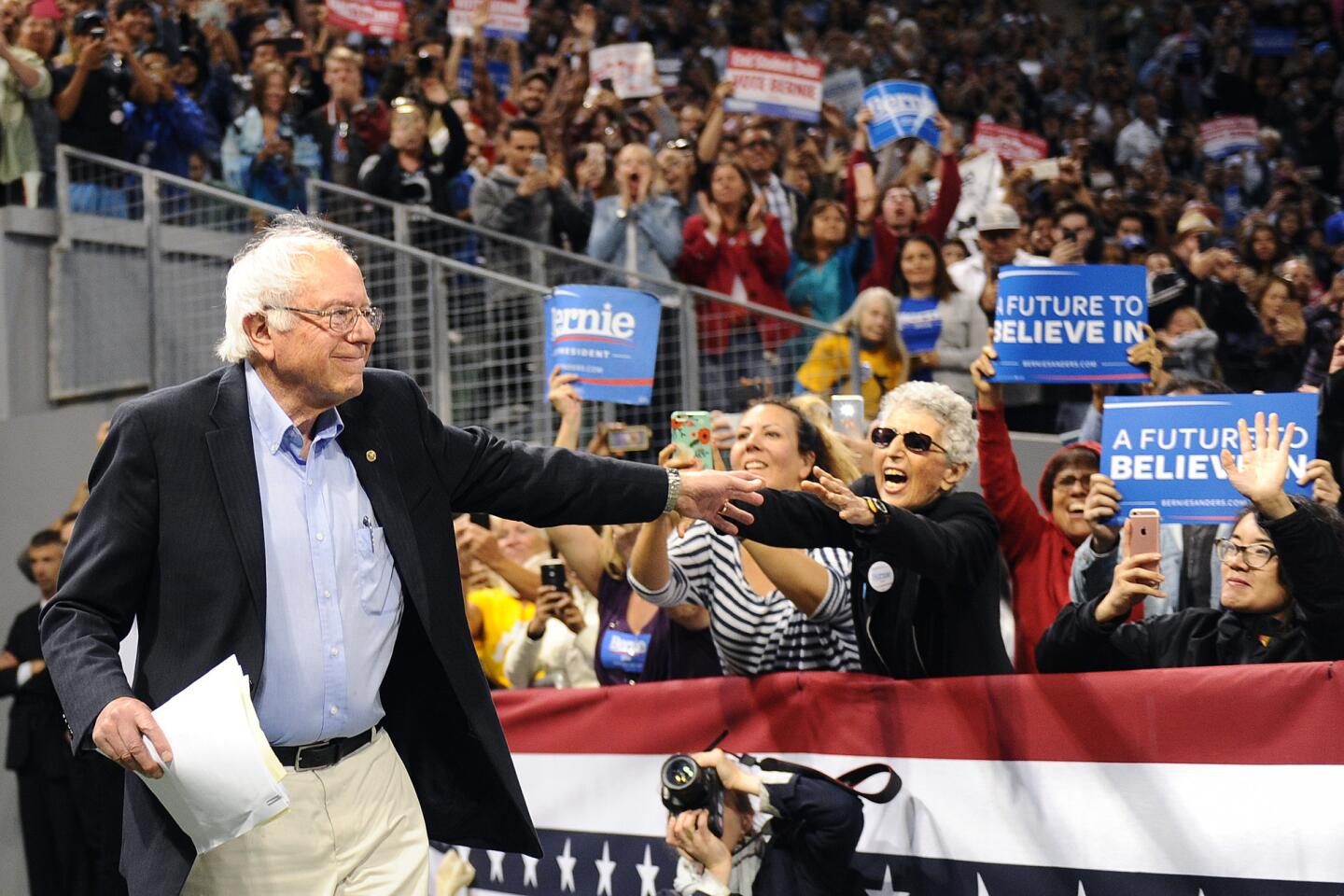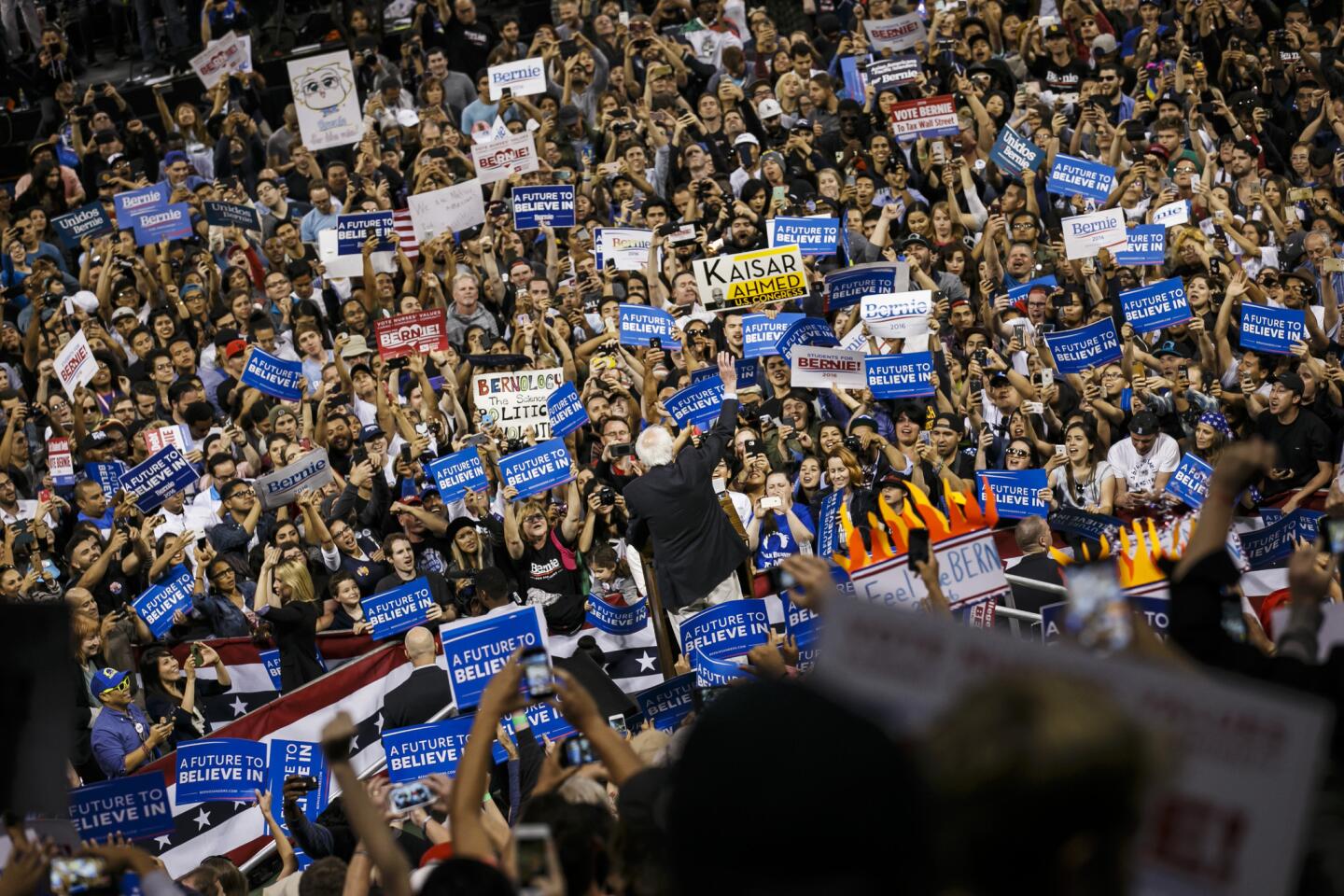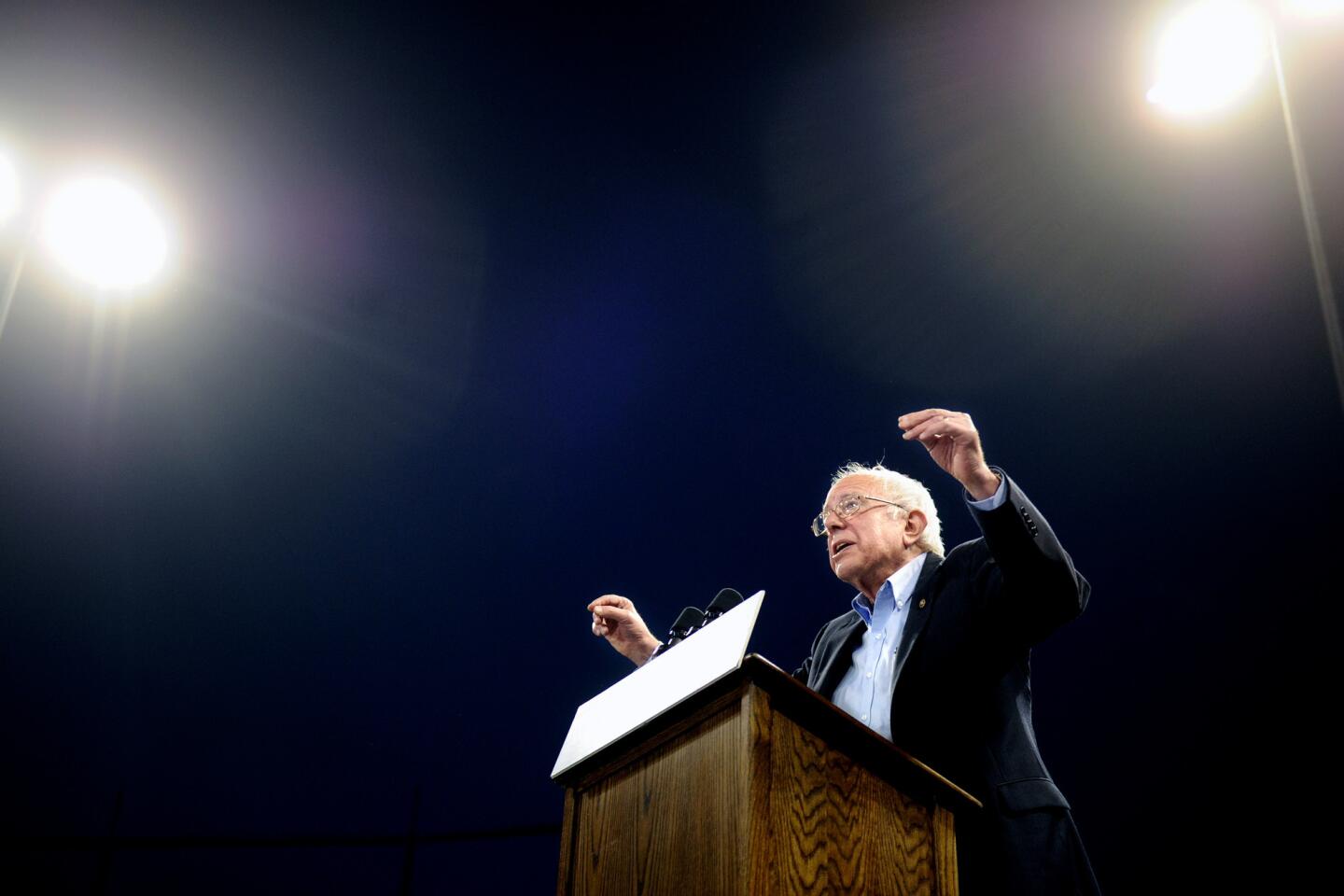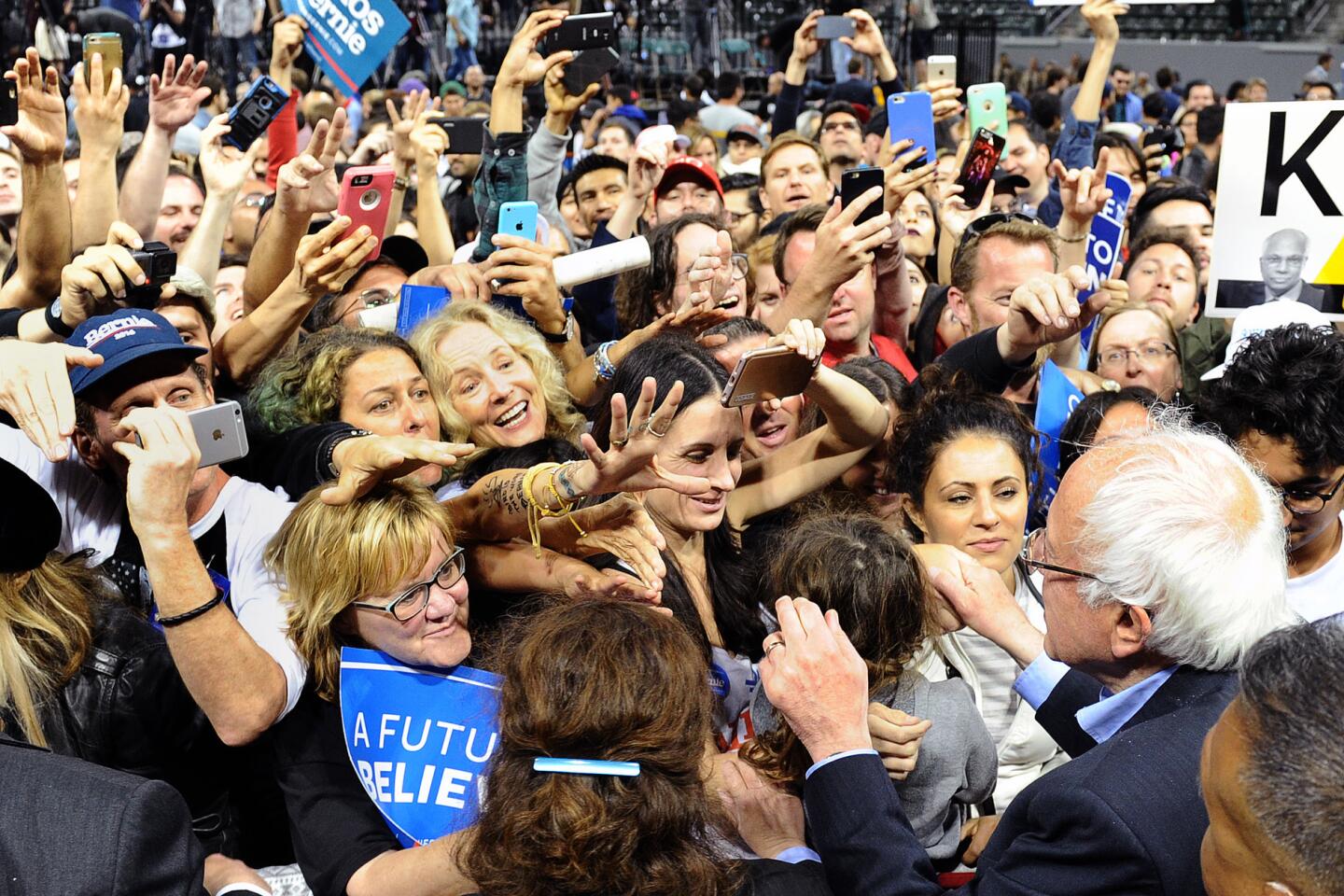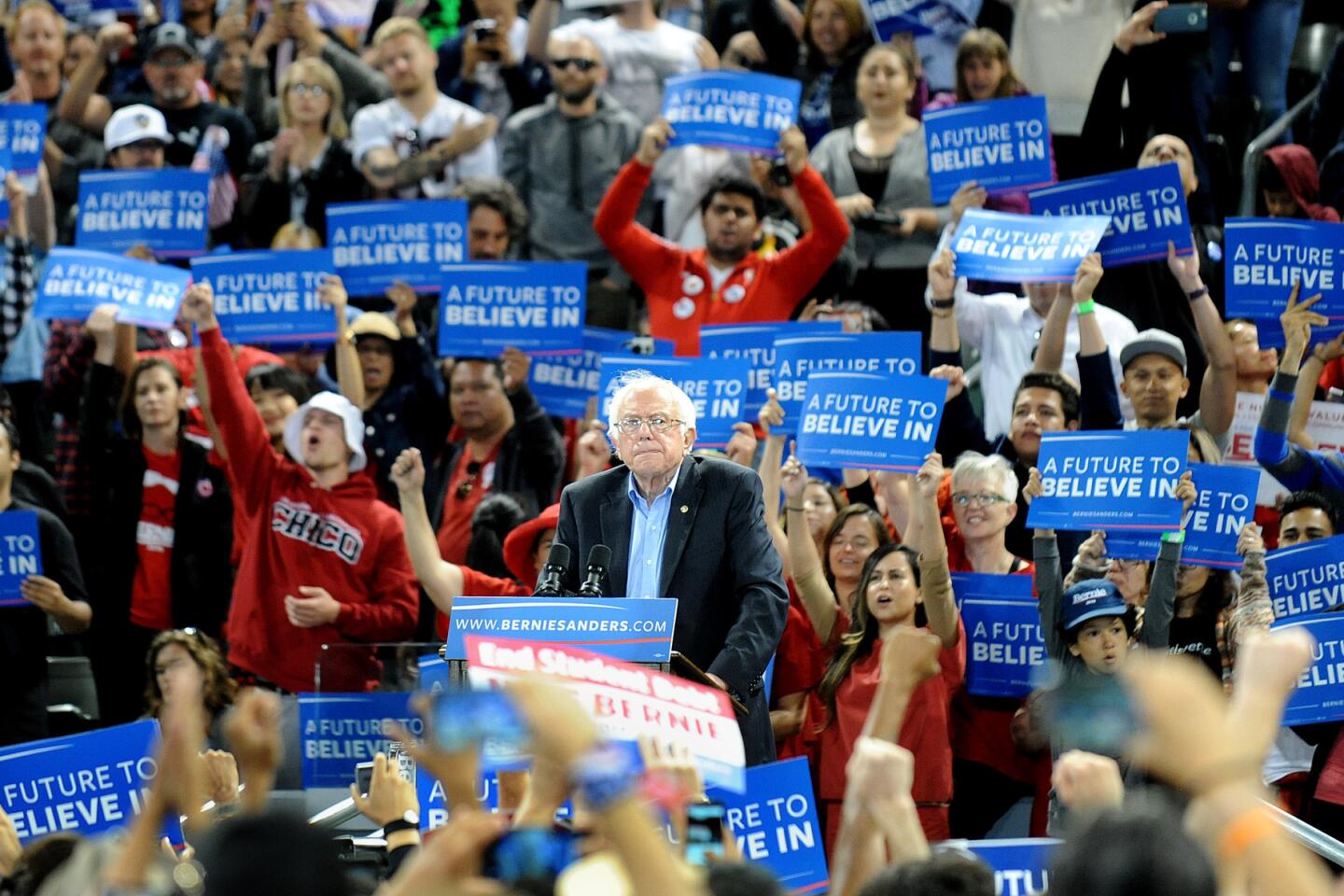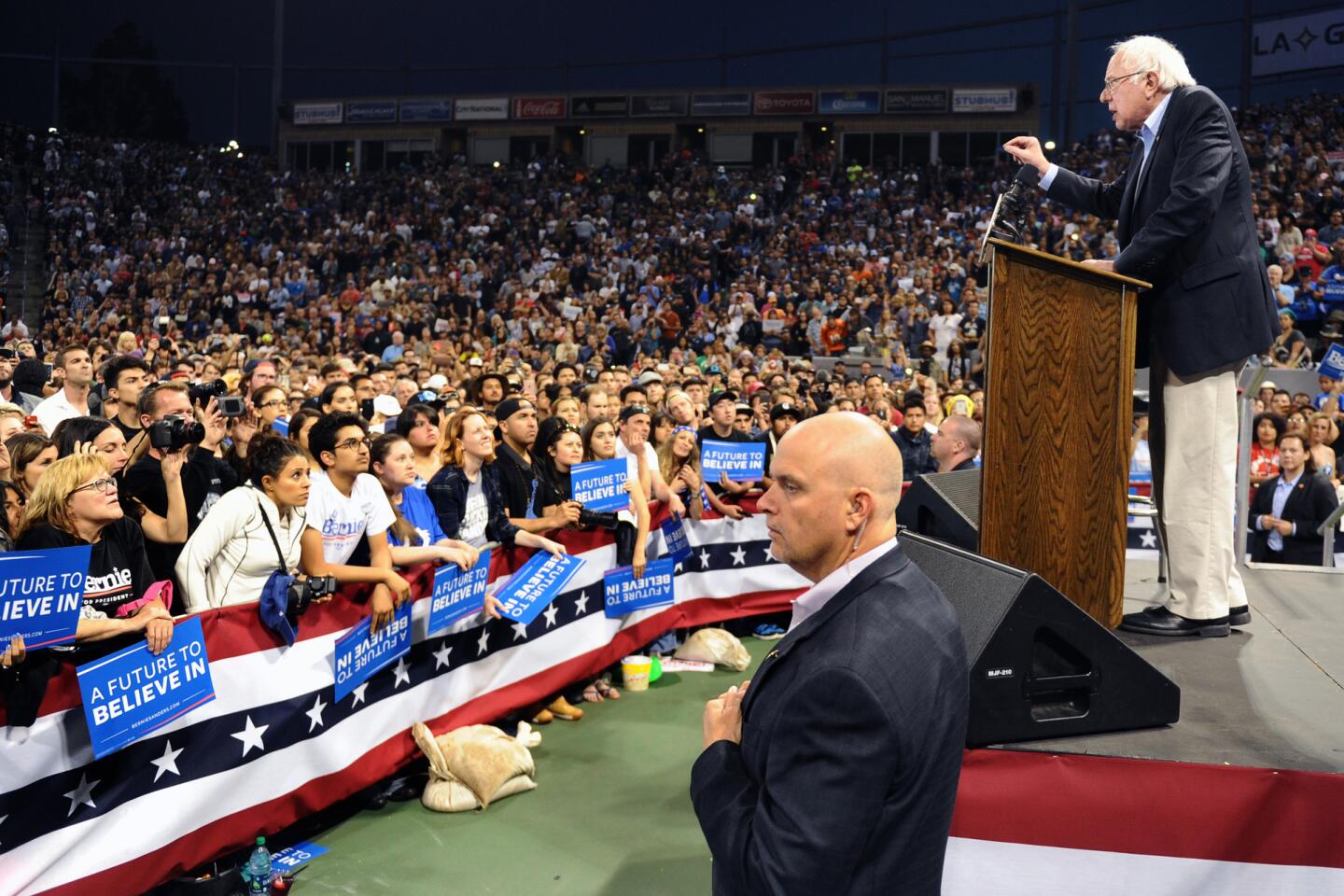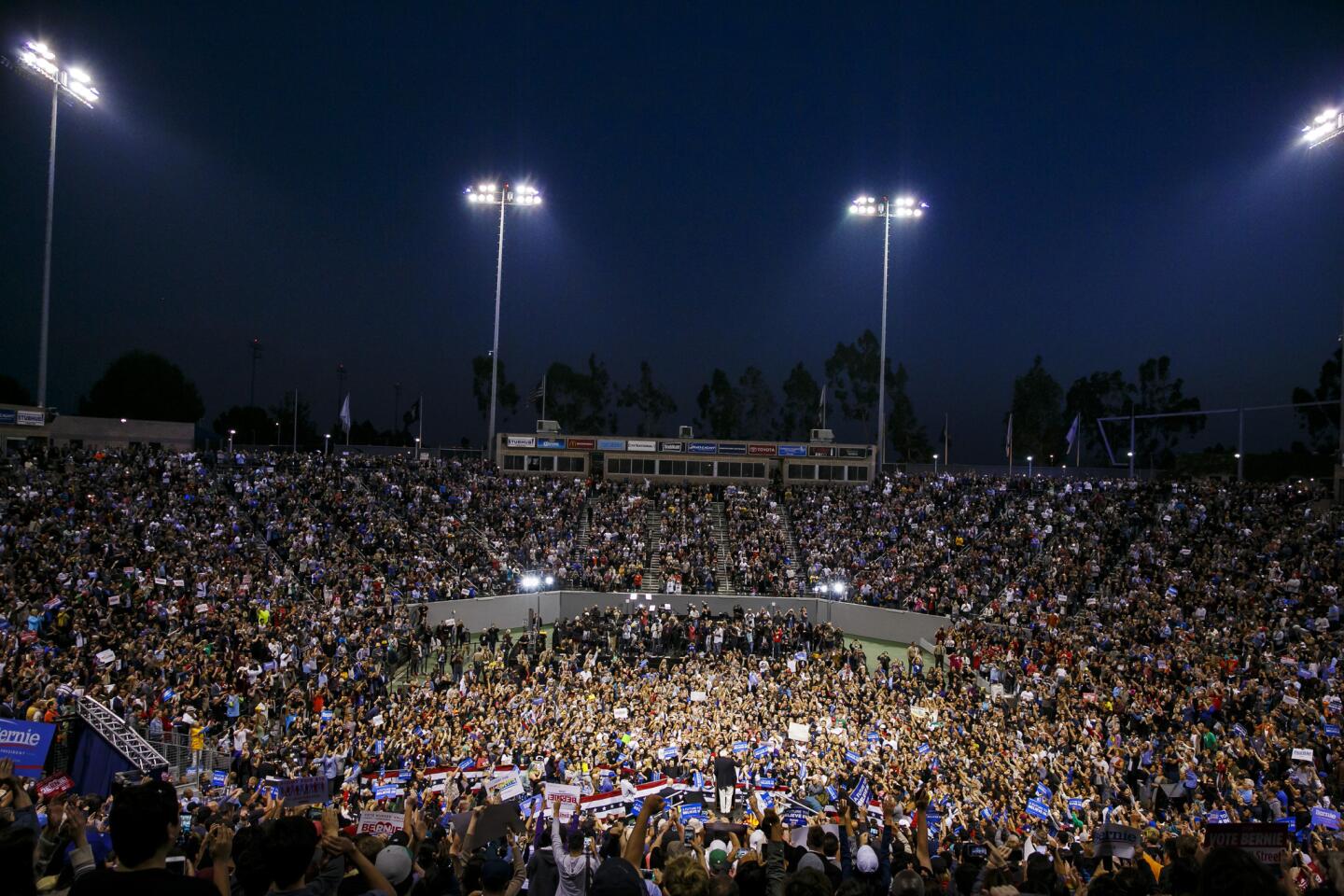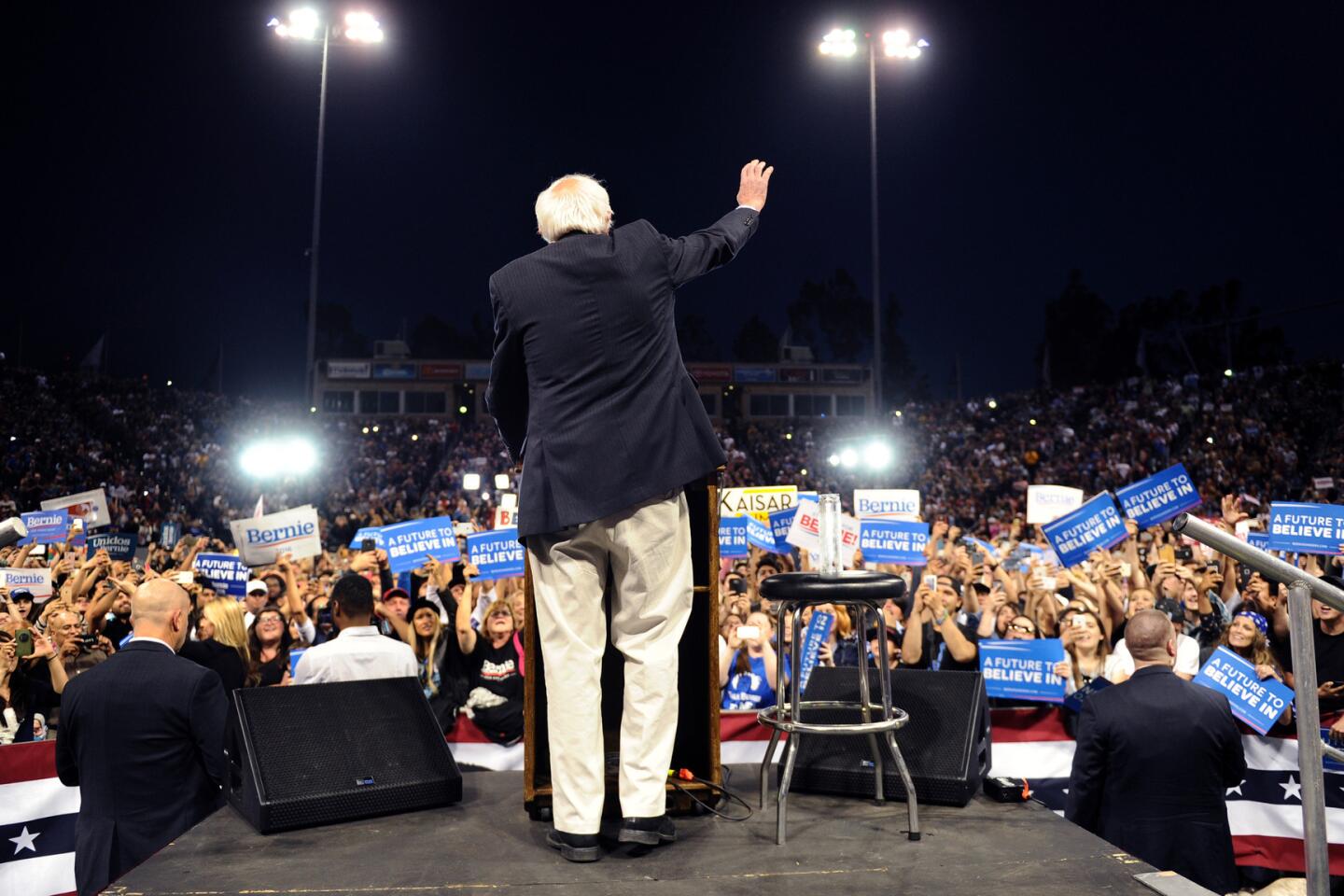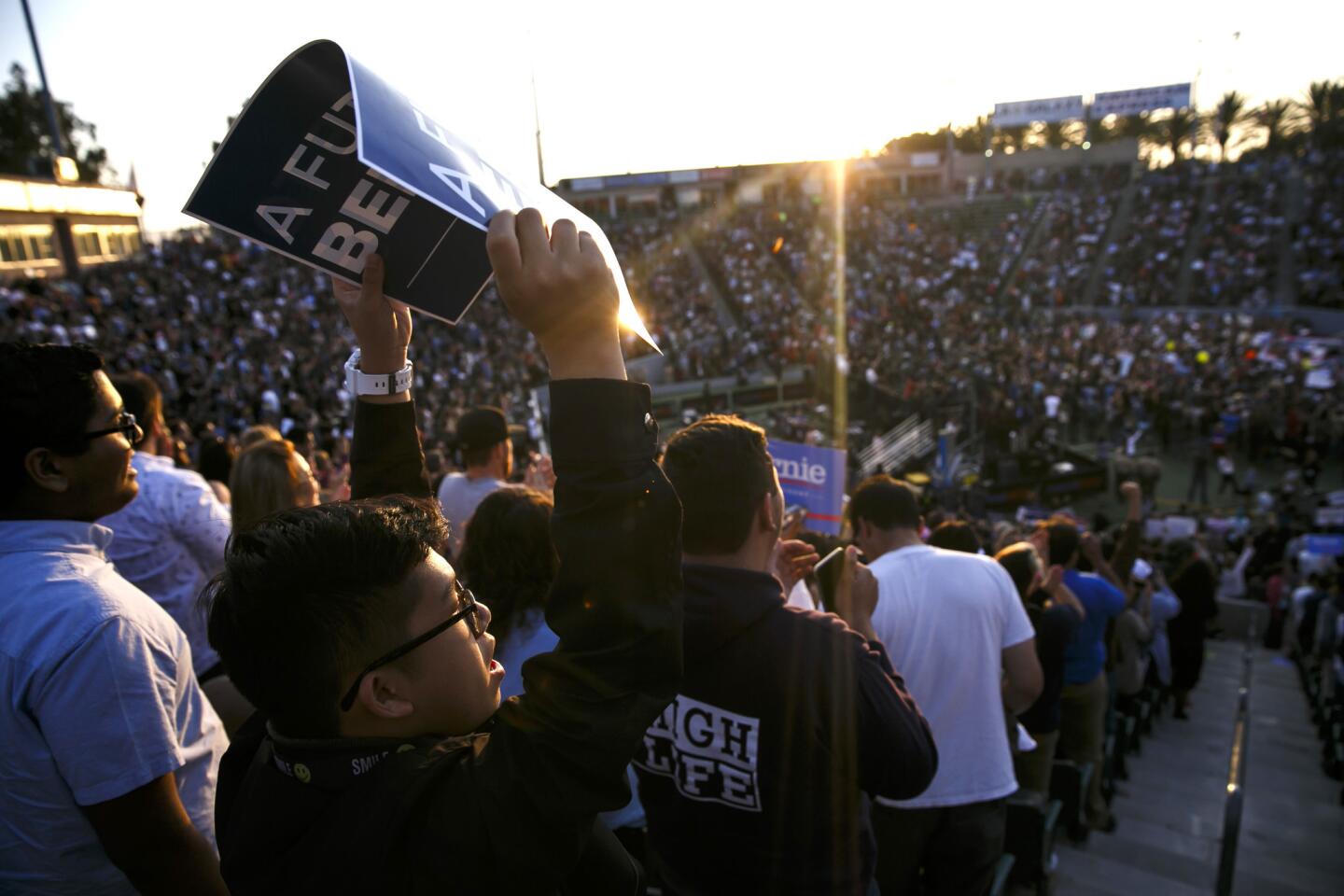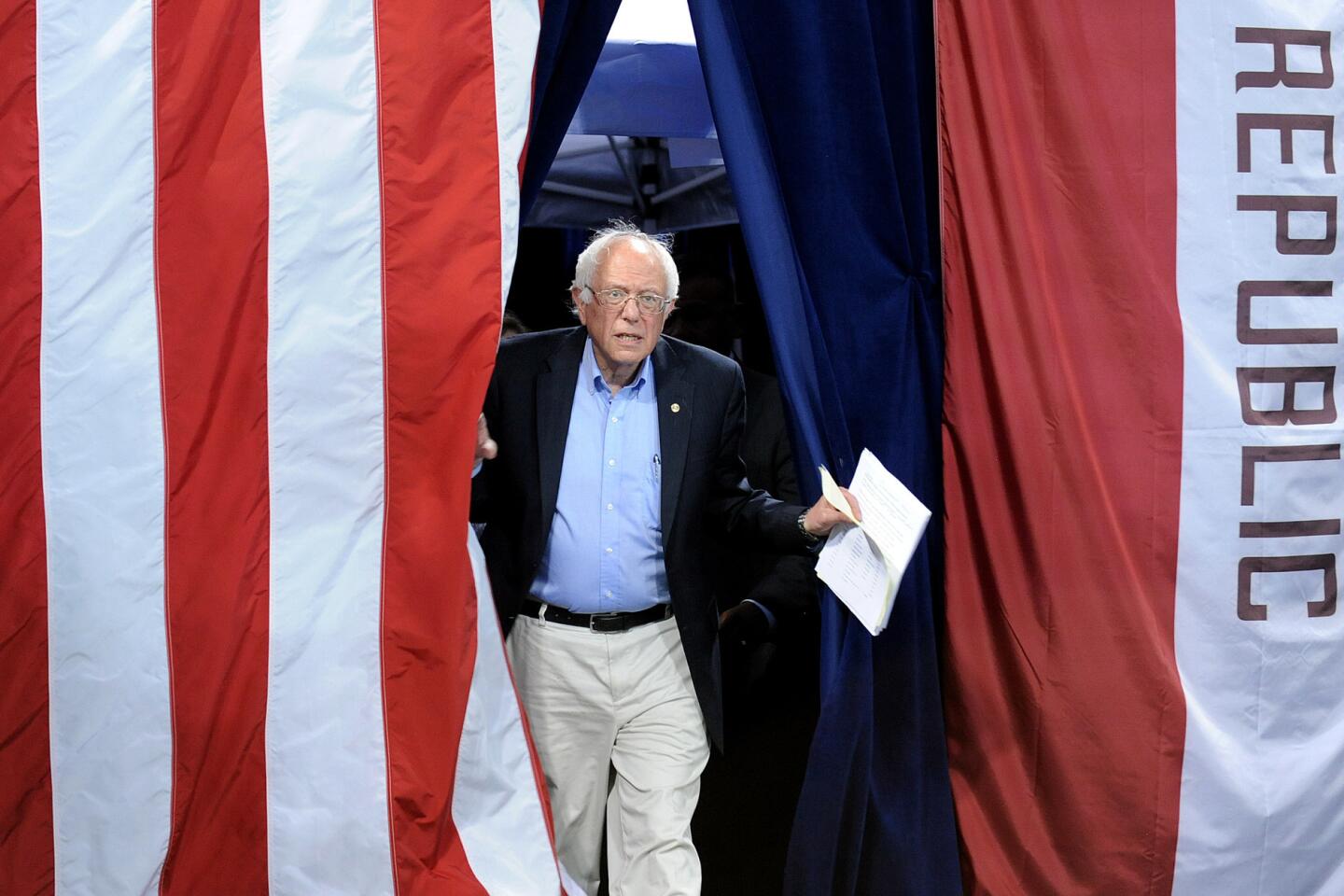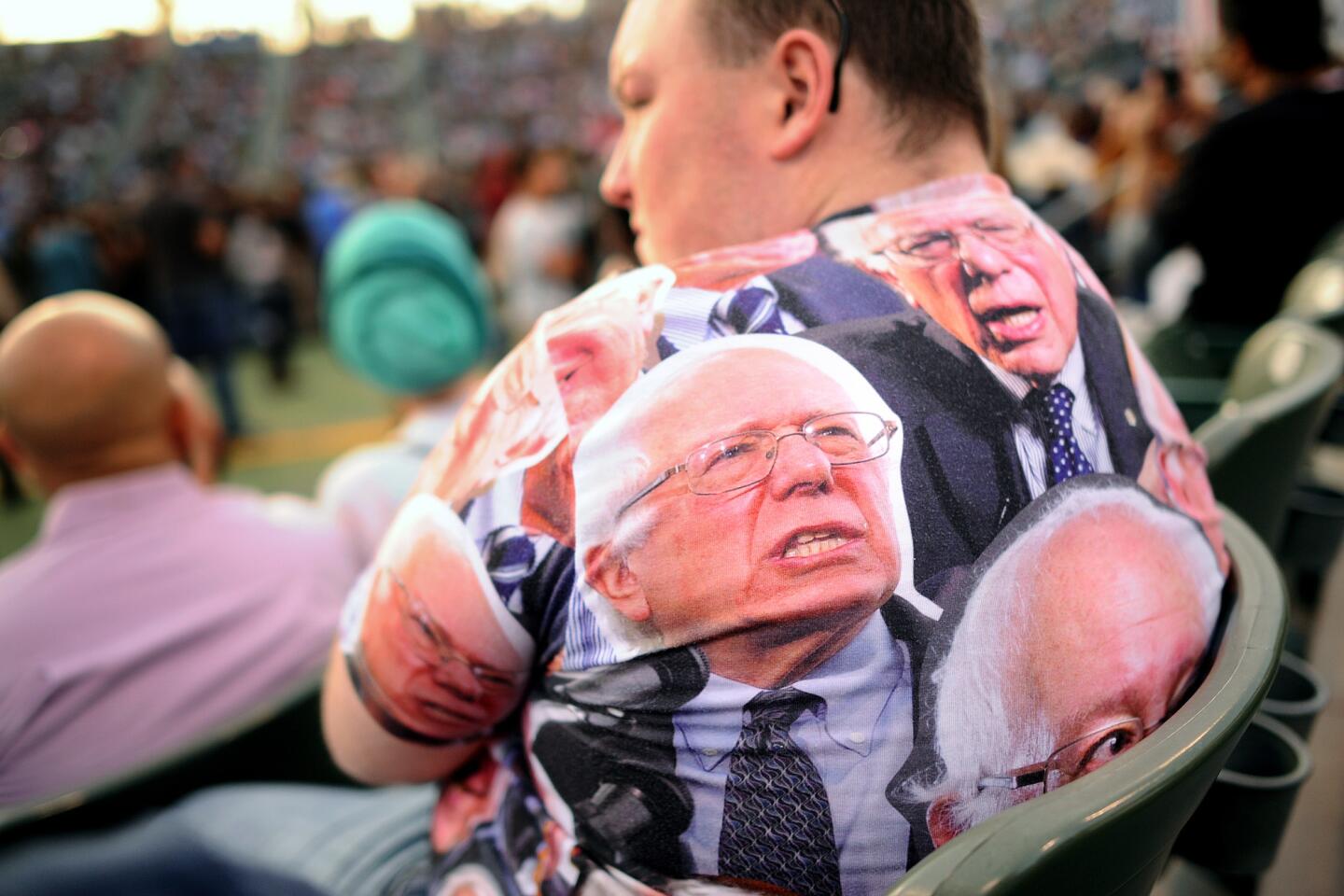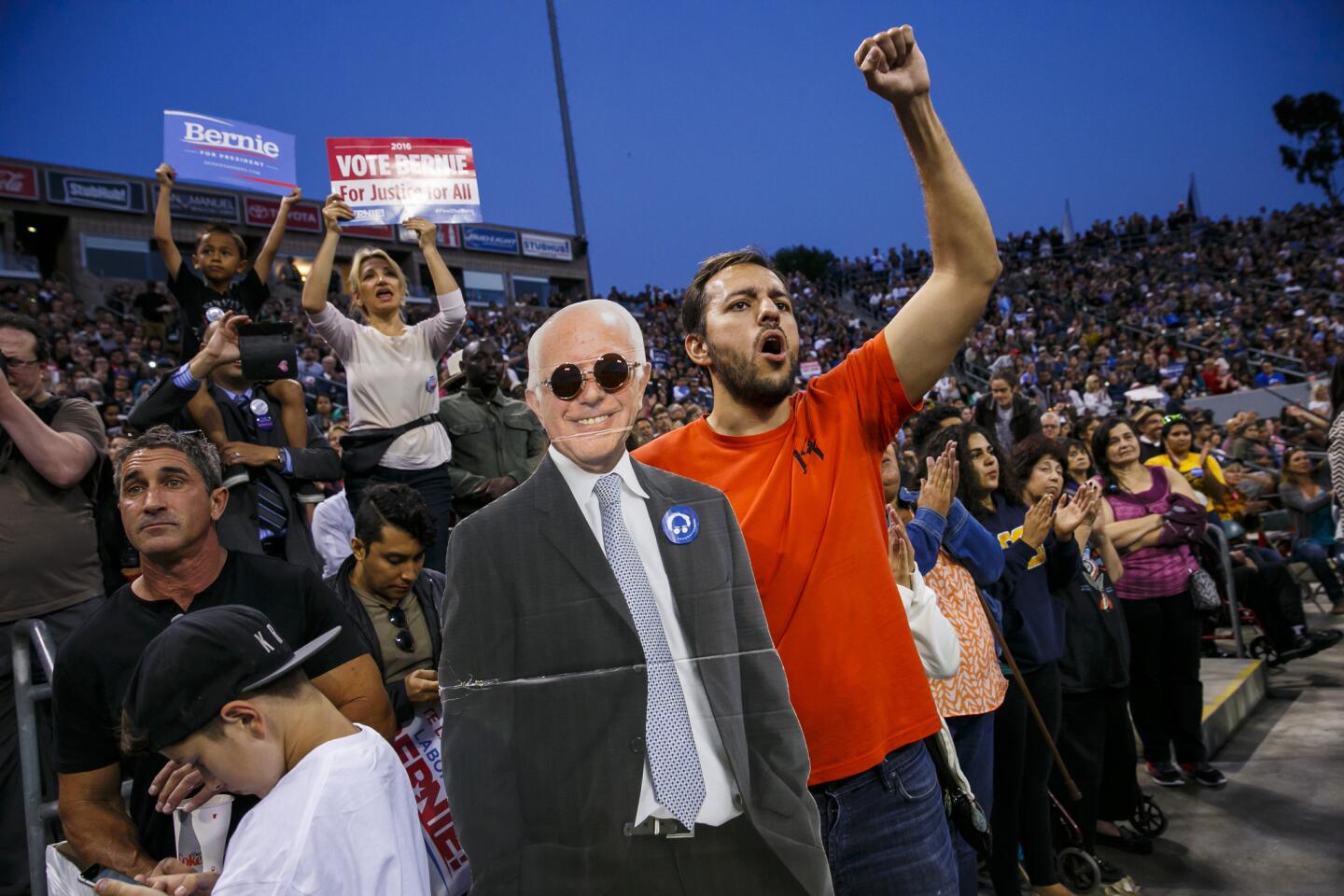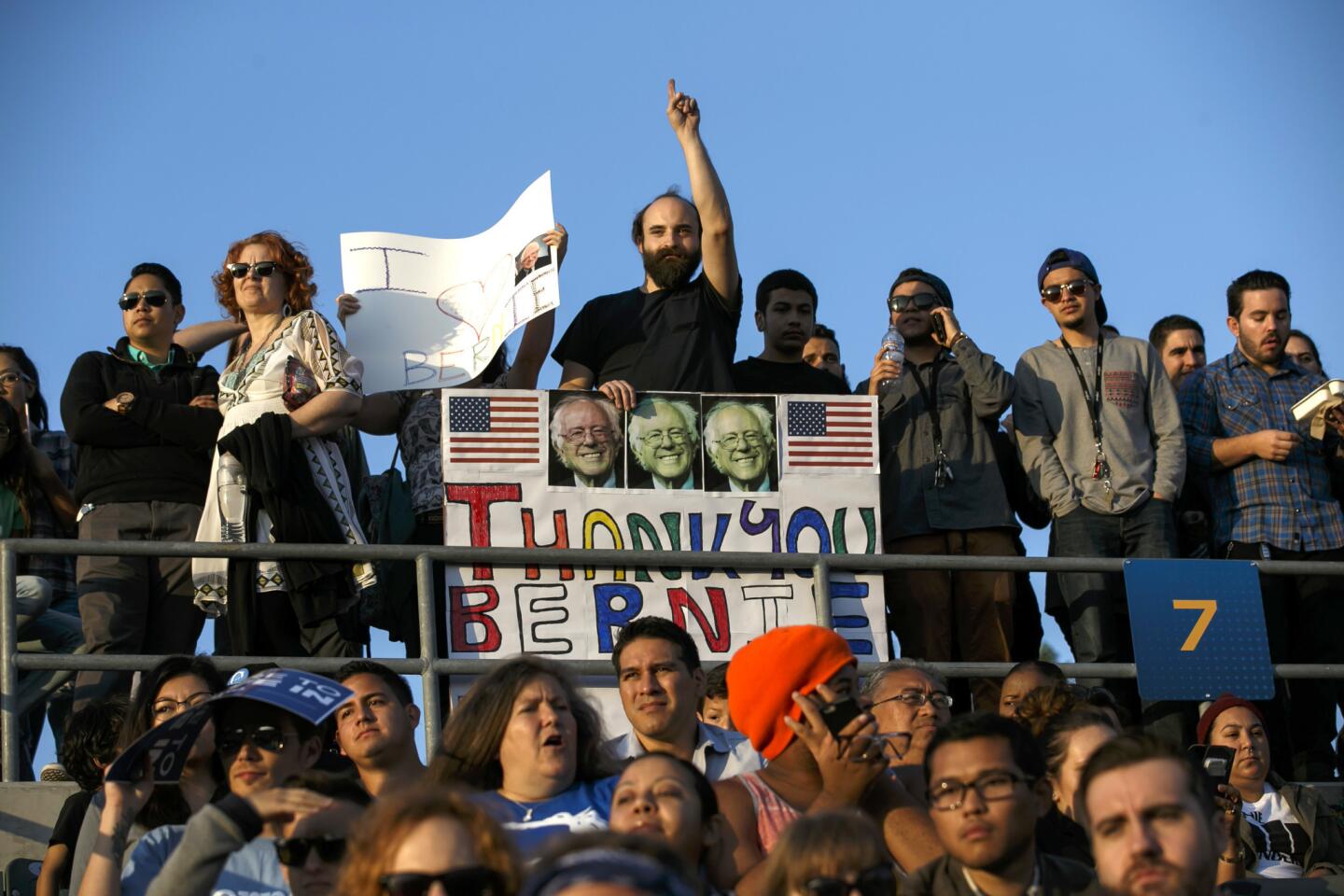Sanders and Democratic officials are engaged in an escalating dispute over Nevada violence
- Share via
Bernie Sanders clashed with Democratic Party leaders Tuesday over violence that erupted over the weekend at the Nevada Democratic Convention, which party officials blamed on a disgruntled group of Sanders supporters.
At issue in the escalating fight is a troubling question for Democrats: Will the fire that Sanders has lighted among millions of supporters with his critiques of Wall Street greed and political corruption burn the party this summer?
Democratic leaders have hoped to see the party begin unifying against the presumed Republican nominee, Donald Trump, and numerous polls have indicated that most Sanders backers are prepared to vote for Hillary Clinton if she becomes the party’s candidate.
But as Sanders’ hopes for winning the nomination have all but disappeared, a segment of his supporters have become increasingly embittered.
Their anger spilled into public view over the weekend as Sanders supporters at the Nevada convention threw chairs, tried to shout down Sen. Barbara Boxer (D-Calif.), vandalized buildings and made death threats against the state party chairwoman after Hillary Clinton won more pledged delegates than the Vermont senator.
See more of our top stories on Facebook >>
After angry complaints by Nevada Democratic Party officials and a chiding statement from Democratic National Committee Chairwoman Debbie Wasserman Schultz, Senate Democratic leader Harry Reid of Nevada said he had spoken to Sanders and expected him to condemn the violence.
Reid called the issue a “test of leadership” for Sanders.
The Vermont senator issued a lengthy statement that included one line saying he does not support harassment, but mostly blamed the problems on Nevada Democratic officials.
“If the Democratic Party is to be successful in November, it is imperative that all state parties treat our campaign supporters with fairness and the respect that they have earned,” he said.
“It is imperative that the Democratic leadership, both nationally and in the states, understand that the political world is changing and that millions of Americans are outraged at establishment politics and establishment economics,” Sanders said.
The statement clearly angered Reid, who has long dominated the Democratic Party in his home state.
“Bernie is better than that,” Reid told CNN. “Bernie should say something and not have some silly statement” that “someone else prepared for him,” he said.
Wasserman Schultz, speaking on MSNBC, said that Sanders’ statement “seems to excuse their supporters’ actions, which is unacceptable.”
Sanders’ willingness to prolong an argument with powerful leaders of his own party was particularly striking because the actual stakes in the weekend dispute were tiny.
Clinton won Nevada’s caucuses in February, but the Sanders campaign had hoped to pick up some additional delegates by sending a large number of his supporters to the state convention.
In the end, not all of Sanders’ supporters showed up and others were ruled ineligible. As a result, Clinton gained a couple of delegates more than she might otherwise have won. Before Tuesday, her lead over Sanders in pledged delegates nationwide was nearly 300.
On Monday, the state party lodged a formal complaint with the Democratic National Committee about the disruptions at the convention.
Sanders supporters had demonstrated a “penchant” for violence that could lead to disruptions at the Democratic National Convention in Philadelphia in July, said the letter from Bradley Schrager, general counsel for the Nevada State Democratic Party.
“We believe, unfortunately, that the tactics and behavior on display here in Nevada are harbingers of things to come as Democrats gather in Philadelphia,” Schrager wrote.
He said Sanders supporters had screamed profane insults throughout Saturday’s convention — they can be seen in YouTube videos of the proceedings — and at one point threw chairs, leading party leaders to shut down the event because of security concerns.
The following day, Schrager said, Sanders supporters defaced the party’s headquarters with graffiti. In the days since, party Chairwoman Roberta Lange has been bombarded with hundreds of threatening phone calls and text messages after Sanders activists posted her cellphone number and home address online, he said.
Sanders, in his statement, said Schrager’s claim that his supporters have a penchant for violence “is nonsense.”
“Our campaign has held giant rallies all across this country, including in high-crime areas, and there have been zero reports of violence,” Sanders said.
He suggested his supporters had the right to be angry, saying party officials had ruled that some Sanders delegates were ineligible without offering an opportunity for some of them to be heard.
In her statement Tuesday, Wasserman Schultz rejected the idea that party officials had provoked the violence. She said that she planned to contact both campaigns “to ask them to stand with the Democratic Party in denouncing and taking steps to prevent the type of behavior on display over the weekend in Las Vegas.”
“There is no excuse for what happened in Nevada, and it is incumbent upon all of us in positions of leadership to speak out,” she wrote.
That some Sanders supporters in Nevada appear to have embraced aggressive behavior despite an earlier plea from the Vermont senator that they work with other Democrats “respectfully and constructively” shows that Sanders may not have full control of his backers, said Nevada political analyst Jon Ralston.
“Sanders has unleashed something that I don’t think even he knew he would unleash,” Ralston said. “Has he started this wildfire that he can’t put out?”
If the answer is yes, that could lead to problems at the national convention this summer.
“The potential is definitely there,” said Robert Loevy, a retired professor of political science at Colorado College. There is a long history of fractious conventions, Loevy said, and they typically result from “sharp ideological divides.”
Sanders, who has run far to the left of Clinton, has waged a largely ideological campaign centered around income inequality. His campaign has drawn in independent voters and others who feel disenfranchised from the political system, and many of them have embraced his ideas with a level of fervor not seen on Clinton’s side.
Loevy said he doubted Philadelphia would be a repeat of the 1968 Democratic convention in Chicago, which erupted in violent street protests after the nomination of Hubert Humphrey. But by staying in the race, Sanders is opening the door for rifts on the convention floor, Loevy said.
“If he wants to go to the convention and make trouble, Hillary Clinton and the Democratic Party leaders are just going to have to deal with it,” Loevy said.
Early in the campaign, Sanders talked about the need to keep Democrats unified and sometimes admonished supporters at rallies not to boo when he mentioned Clinton’s name.
In recent weeks, however, he has appeared reluctant to call out pugnacious supporters who cross the line from political activism to harassment. Sanders has frequently said that he believes the election is stacked against him by Democratic Party leaders who want Clinton to be elected. His campaign has alleged voting irregularities in several primary states.
Winnie Wong, who helps lead an outside group called People for Bernie that is working to elect Sanders, says her group does not condone violence and has already started talking about how its members should comport themselves at the convention in Philadelphia.
“I don’t think that kind of violence is ever going to create a consensus,” Wong said. “We’re working toward making sure that doesn’t happen.”
But still, she said the Sanders supporters in Nevada had legitimate concerns, saying many state Democratic conventions have been “stacked in favor of the establishment candidate.”
“These are just ordinary people,” she said. “They’re citizens who feel like their voices aren’t being heard.”
Times staff writer Lisa Mascaro in Washington contributed to this report.
ALSO
Sanders campaign hopes major voter registration effort pays off in Oregon
What a post-Trump Republican Party might look like
Welcome to a Bernie Sanders Wiccan ritual
For more on Campaign 2016, follow @KateLinthicum
UPDATES:
8:26 p.m.: This article was updated with an additional statement by Democratic chair Debbie Wasserman Schultz.
4:19 p.m.: This article was updated with an additional statement by Sen. Reid.
3:34 p.m.: This article was updated with an additional statement by Sen. Reid.
1:07 p.m.: This article was updated with a statement by Sen. Sanders.
The article was originally published at 12:09 p.m.
More to Read
Get the L.A. Times Politics newsletter
Deeply reported insights into legislation, politics and policy from Sacramento, Washington and beyond. In your inbox three times per week.
You may occasionally receive promotional content from the Los Angeles Times.
